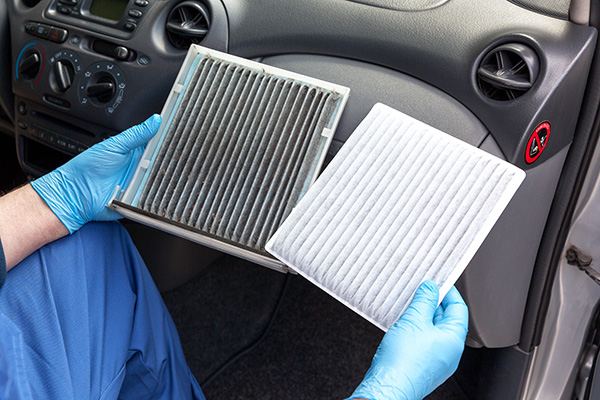
Many drivers stay on top of oil changes and tire rotations but overlook one small yet crucial component: the cabin air filter. This filter helps keep the air inside your car clean and free of pollutants, pollen, dust, and even unpleasant odors. Replacing it on time isn’t just about comfort — it’s also about protecting your health and maintaining your vehicle’s HVAC system.
What Does the Cabin Air Filter Do
Your cabin air filter works like a shield between the outside world and your car’s interior. It traps contaminants before they enter through the ventilation system, ensuring the air you breathe while driving is as clean as possible.
Especially in a city like Seattle, where seasonal pollen counts and urban pollution can be high, this filter plays an important role in maintaining cabin air quality.
How Often Should You Replace It
Most manufacturers recommend replacing the cabin air filter every 15,000 to 30,000 miles, or about once a year. However, your specific environment and driving habits can affect this timeline.
If you often drive in heavy traffic, dusty conditions, or areas with high pollen, you might need to change it more frequently. Reviewing your owner’s manual or consulting your technician is the best way to know what’s right for your car.
Signs Your Cabin Air Filter Needs Replacement
Even if you don’t track mileage closely, your vehicle may give you signs that it’s time for a new cabin air filter:
- Reduced airflow from the vents, even at higher fan settings.
- Musty or unusual odors when you turn on the air conditioning or heater.
- Increased dust settling on your dashboard and interior surfaces.
- Foggy or hazy windows that take longer to clear.
These symptoms indicate that the filter is clogged and struggling to let air through effectively.
Health and Comfort Implications
A dirty cabin air filter can cause more than just inconvenience. Poor air quality inside your vehicle can aggravate allergies and asthma, leading to sneezing, coughing, and general discomfort during your drive.
Replacing the filter helps remove pollutants and allergens, creating a healthier and more pleasant driving environment for you and your passengers.
Impact on HVAC Performance
A clogged cabin air filter forces your HVAC system to work harder, which can strain the blower motor and other components. Over time, this can lead to premature wear or even expensive repairs.
By simply replacing your cabin air filter on schedule, you help maintain optimal airflow and system efficiency, extending the life of your HVAC system.
DIY or Professional Replacement
Some drivers choose to replace their cabin air filter themselves, and for many vehicles, it’s a relatively simple task. However, access can be tricky in certain models, and it’s easy to accidentally install the filter incorrectly.
Having a professional perform the replacement ensures it’s done right and gives your technician a chance to inspect other parts of your HVAC system.
Environmental Considerations
A clean cabin air filter also helps reduce your environmental impact. When the HVAC system runs more efficiently, it uses less energy, which can slightly improve fuel efficiency and reduce emissions.
While the impact might be small per trip, it adds up over time, making this a simple way to contribute to better environmental stewardship.
Trust West Seattle Autoworks in Seattle, WA
At West Seattle Autoworks in Seattle, WA, we understand that even minor maintenance items can significantly impact your comfort and your vehicle’s longevity. Our experienced team can inspect and replace your cabin air filter, ensuring you always breathe clean, fresh air while driving.
Whether you’ve noticed reduced airflow, strange odors, or just want to keep your vehicle in top shape, we’re here to help. Schedule a service with us today and enjoy a healthier, more comfortable ride all year long.